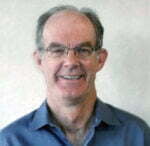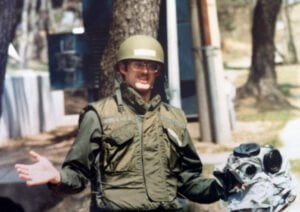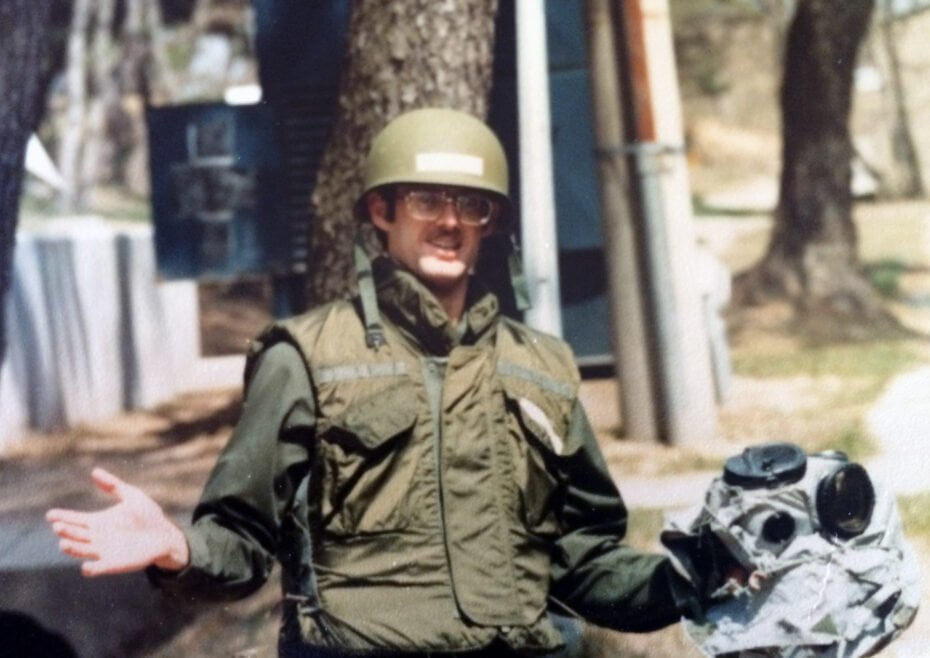By A. J. “Bud” Gerathy, D.M.D., M.S
From the Spring/Summer 2020 Journal of the Colorado Dental Association
 At this point, it has been 29 years since Operation Desert Storm (the First Gulf War). The upset it caused for military reservists is similar to the chaos experienced because of the COVID-19 pandemic. Perhaps this story offers some hope that things will work out.
At this point, it has been 29 years since Operation Desert Storm (the First Gulf War). The upset it caused for military reservists is similar to the chaos experienced because of the COVID-19 pandemic. Perhaps this story offers some hope that things will work out.
In January of 1991, as I was finishing some crowns on the evening’s last patient, reports came over the radio that “The Coalition” had initiated the bombing of Bagdad. My heart skipped a beat. Besides being a solo practitioner, I was a major in the Air Force Reserves. As I worked and tried to sound upbeat, everyone in the office was listening intently to the radio reports of the bombing, the defensive gun and missile fire, and the projections of casualties. The phone rang 15 minutes later. It was my commander at the 302 Medical Squadron, Peterson AFB, Colorado Springs.
“We’re going. Report tomorrow 0600hrs.”
My stomach dropped to my ankles. “Where are we going?” I asked hoarsely.
“Sorry, that’s classified. You’ll find out.”
I wanted to ask a lot of questions, like, “How long?” but nothing came out. It didn’t matter. This was war. You go where they send you and you go until it’s over. I felt numb.
The 12 hours that followed remain a blur. I remember being the last one to leave the office. As I was walking out the door the phone rang again. It was a local woman who was in severe pain. She didn’t have much money and no other dentist in the area was still open. I tried to explain to her that I had some problems of my own, but she started crying. So, I told her to get here as fast as she could.
Turned out she needed a surgical extraction and I could not do it without an assistant. I numbed her up to provide some temporary relief, wrote a prescription for some pain meds, and gave her the names of other dentists to try in the morning. I didn’t charge her. Why bother? The practice was going down the tubes. She was so grateful and thanked me profusely. I felt guilty that I could not do more.
We waited at Peterson AFB for five days before departing in several C-130 transports. On the fourth day, Super Bowl Sunday, I drove up to the Air Force Academy for 9:00 a.m. mass. Sitting alone in the last row of the famous Air Force Academy Chapel, I almost started crying when the cadet choir sang Lord Guard and Guide our Men who Fly. I kept thinking that, even if I managed to return from this war unharmed, my life was ruined. The practice on which I had labored so hard, built from scratch, would go under. I couldn’t imagine starting over. I promised God that if I were to emerge from this mess OK, I would do anything He asked. I felt a little guilty about being selfish, trying to strike an 11th hour deal with Him. Desperation does that.

As we boarded the transports the next day, they still would not tell us our destination. My stomach was sick as we lifted off. The other members of the squadron looked calm. I was dying inside. My commander, a respected local physician, put a hand on my shoulder and said, “We will get through this.” I felt wimpy for being so scared.
As it turned out, my war experience was pretty limited. We flew to Travis AFB in California to replace the personnel who had been deployed to the Middle East. It was a confused situation and I did very little work there. We were also the “B” team for overseas deployment. If some of those SCUD missiles had wiped out our medics in the war theater, we would have been air born immediately, headed overseas. Instead, in less than three months, the war was over. We returned to Colorado.
I was very upset for two reasons. The first was because I had been jerked out of my practice and now faced a dire financial situation. Even with the laudable efforts of the only other dentist in town to help my practice, the financial hole was huge. The second reason was because I had been jerked out of my practice and basically had done nothing. Despite being scared to death on that plane, my reason for being in reserves in the first place was because I believed in serving America. If only I had done something worthwhile, something where I had really helped the war effort and my country, the financial problems might be easier to tolerate. Instead, I sat in California and did nothing. I felt very depressed.
Upon arriving back at my little rented townhouse, I could not believe the sight. Yellow ribbons and flowers were all over the front door, the shrubs, the windows, and even up in the gutter. My neighbors came over for hugs and handshakes. It was nice to be welcomed, but it felt a little embarrassing. “I didn’t do anything,” I repeated.
News spreads quickly in a small town. When my medical squadron was preparing to leave Peterson AFB, I was featured on the local TV news. Two newspaper reporters also did interviews. Now word was getting around that “Dr G” was back. Merchants gave me discounts. Friends brought dinner over. Patients stopped by the office to just say welcome home. The phone was ringing off the hook. New patients called and made appointments solely because I had gone to war and they wanted to support me. The more I said, “Thanks, but I really didn’t do anything…” the more good things happened.
The first full month back was my biggest income month in the three years since I opened the practice. The second month was even better. People paid ahead and collections were over 100%. Bankruptcy was averted…barely. As a direct result of my “participation” in the war, I was at a gathering where I met a woman who eventually became (and still is) my wonderful wife. Then a call came from someone in our Town Hall asking me to be the co-Grand Marshall at the Monument July 4th parade, one of the largest small-town parades west of the Mississippi. “Is this a joke?” I asked. It wasn’t. It was just crazy. I felt very bewildered about the whole situation.
A little later, I met an elderly patient of mine outside the post office. He was a highly decorated flyer from WWII, Korea and Vietnam. I was a little uncomfortable talking to him “veteran to veteran” about serving in wartime. I told him that he was the vet, not me. I didn’t do anything.
He gave me a steely look and spoke to me like he was my father. “You were called, you went, and you served as best you could. Everybody in town knows you sacrificed. We’re all proud of you.” He shook my hand and walked off. I was stunned. Maybe doing nothing was really something?
The succeeding years have been good. My solo practice, the town of Monument, and the surrounding area have grown and flourished. I sold the practice in 2014 and left my successor to worry about the 15-20 other dentists who have moved into the area. After kicking back for a few months, I went to work part-time at a local community health center. Working on less fortunate people was rewarding—until I was furloughed at the beginning of April. I wasn’t worried though, because I already know, “we will get through this.”


